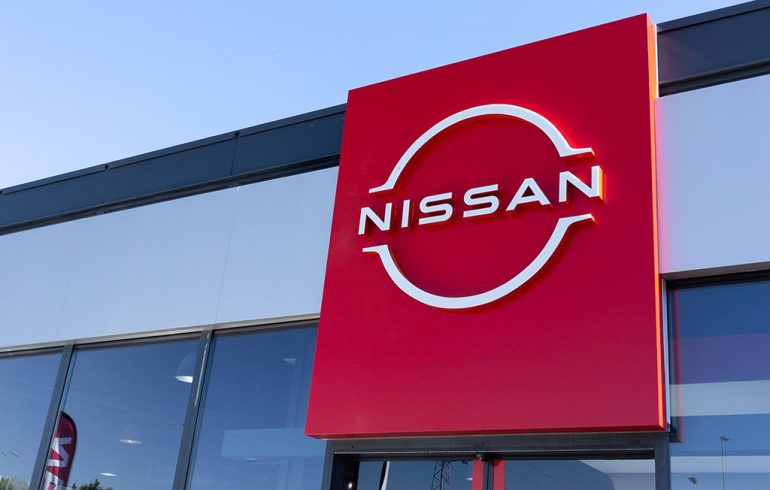Honda and Nissan Reportedly in Merger Talks to Sort out EV Competitors and Enhance Income : Automotive Addicts
Automotive

Honda and Nissan—two of Japan’s greatest automakers—is likely to be taking their partnership to the subsequent stage. In accordance with a report from Nikkei, the 2 corporations are exploring a attainable merger as they face growing stress from EV giants, notably in China. Whereas each automakers have been fast to disclaim any formal bulletins, the thought isn’t as far-fetched because it may appear. With the electrical automobile market evolving at lightning pace and competitors heating up, working collectively may very well be the easiest way for these long-time rivals to remain within the sport.
The 2 corporations have already began collaborating in current months. Earlier this 12 months, Honda and Nissan introduced plans to collectively develop EV applied sciences, together with batteries and electrical drivetrains, as a solution to pool assets and scale back prices. However with Chinese language automakers like BYD surging forward and gross sales slowing in key markets like China and the U.S., a merger could also be what’s wanted to construct a stronger, extra aggressive basis for the longer term.
The Aggressive Problem
Honda and Nissan face related challenges. China, the world’s largest auto market, accounts for almost 70% of world EV gross sales. With homegrown gamers like BYD and Nio dominating the market, legacy automakers, together with Honda and Nissan, are struggling to take care of their foothold. In 2023, each corporations bought a mixed 7.4 million automobiles globally, however declining demand, notably in China and the US, has triggered a necessity for value effectivity and progressive alliances.
Nissan, as soon as an EV pioneer with its groundbreaking Leaf mannequin, has seen its early momentum fade as new gamers revolutionize the market. Nissan’s current financials paint a regarding image, with half-year earnings plummeting by over 90%, forcing cost-cutting measures. Honda, whereas faring higher financially, has confronted related struggles to scale its EV efforts profitably.
A Strategic Merger within the Making?
Nikkei stories that the 2 corporations are exploring the formation of a single holding firm, marking what may very well be essentially the most important automotive merger for the reason that $52 billion deal between Fiat Chrysler and PSA Group, which shaped Stellantis in 2021. If Honda and Nissan proceed with this plan, they could create one of many world’s largest automotive alliances, with mixed assets to sort out world competitors head-on.
Notably, the report suggests Mitsubishi Motors, wherein Nissan holds a 24% stake, is also a part of the equation. Bringing Mitsubishi into the fold would create a robust three-way alliance able to reaching better economies of scale, value effectivity, and quicker innovation.
Why a Merger Makes Sense
- Shared EV Improvement: Each corporations have been doubling down on their EV methods however lag behind rivals. Merging assets for battery growth, e-axles, and charging infrastructure might speed up their EV manufacturing capabilities.
- Value Effectivity: A merger would enable the businesses to streamline operations, scale back duplication in manufacturing and R&D, and decrease total bills, essential in a aggressive and capital-intensive EV market.
- International Scale: Along with Mitsubishi, Honda and Nissan might kind a powerful entity able to competing not simply in China however globally towards gamers like Tesla, Stellantis, and Volkswagen.
- Market Response: Buyers have already proven optimism. Honda’s U.S.-listed shares climbed 1.3% following the Nikkei report, indicating optimistic sentiment towards potential consolidation.
International Automakers Are Adapting
This growth underscores a broader development throughout the auto business. Normal Motors and Ford have scaled again their EV investments as a consequence of excessive prices and infrastructure challenges. Volkswagen faces union disputes and price considerations as demand in Europe wanes. Concurrently, incoming political uncertainty within the U.S. might jeopardize EV-friendly insurance policies, including one other layer of complexity for automakers.
For Honda and Nissan, a strategic merger might place them higher for the lengthy haul, combining their engineering experience, technological developments, and manufacturing capability.
Whereas neither Honda nor Nissan has formally confirmed the merger talks, the writing on the wall suggests a deeper alliance could also be inevitable. As world automakers race to satisfy evolving market calls for, collaboration shall be key to survival—and success.
Ought to this merger come to fruition, it will not solely reshape Japan’s automotive panorama but additionally ship ripples all through the worldwide business. For now, all eyes stay on Honda and Nissan as they navigate their subsequent transfer in an more and more electrified world.
FOLLOW US TODAY:





